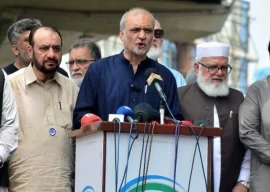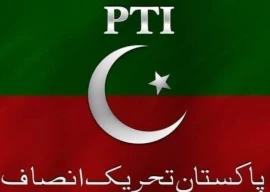Muslim governments in the Middle East have used the bogey of threat from Islamic fundamentalists to justify military rule. But a deeper understanding will reveal that a lack of empowerment and emptiness on the part of the masses has given rise to the military. Absence of democracy in Muslim countries has also led to heavy reliance on foreign powers such as the US, to sustain the regimes.
Will the failed coup in Turkey provide oxygen to Pakistan’s anaemic democracy, or is the situation in the two countries very different? This is just one of the questions on the minds of the people.

In the final analysis, it can be argued that it is the people of Turkey who saved democracy. They came out on the streets and went so far as putting their lives on the line — the ultimate sacrifice, because they knew that they had a stake. What will happen if ever a similar situation arises in Pakistan? Will the people be brave and forthcoming enough to defend democracy? It is doubtful, despite the fact that majority of Pakistanis a prefer continuation of democracy. The zeal and fervour that was witnessed in the masses of Turkey may be lacking in our people.
Interestingly, Pakistan and Turkey share some similarities in their struggle for democracy. Both countries experienced four military interventions and the military has exercised power beyond its legitimate and constitutional authority for decades. The coups in Turkey were of a much shorter duration than ours. In 2012, two surviving Turkish generals of the 1980 coup were tried for overthrowing the civilian government. In Pakistan, most of the coups have been subsequently legitimised and constitutional immunity has been granted generously or dragged along indefinitely, as in the case of General (retd) Pervez Musharraf. The people of the two countries have experienced military rule and have realised its grave limitations. They have seen how military rule weakens almost all other institutions and competing centres of power, whether it is parliament, judiciary or bureaucracy.
But there are some basic differences. Pakistan came into being through a democratic movement led by the Quaid-e-Azam, Mohammed Ali Jinnah, who was steadfast in ensuring civilian supremacy. On the contrary, it was Kemal Attaturk, a military ruler, who is the founder and architect of modern Turkey. Moreover, their constitution bestowed a constitutional role to the military because of its historical pre-eminence and guardianship of the secular ideology. Pakistan has bestowed no constitutional role to the military.
There are some important lessons for President Erdogan to draw from the recent crisis. The political repression applied by the state on those who oppose him or loudly express their dissenting views, cuts against the basic norms of democracy. There is a widespread belief that Erdogan has become increasingly autocratic and tries to impose his ideas and conservative Islamic values through coercive tactics, despite Turkey’s secular constitution and tradition. The blocking of the internet, strict control of the media and the jailing of dissidents such as followers of exiled cleric Fethullah Gullen, are repressive measures and unacceptable by any standards. There will be long-term effects of these ill-advised policies. Having turned the economy around and brought new hope to millions, it will be in the fitness of things for the president to strengthen the practice of democracy, otherwise he will create a situation where there is corruption, commercialisation of power and deep polarisation between the rich and the poor, as well as between secularists and Islamists. This reconciliation becomes more critical as Tayyip Erdogan has served the country well for more than a decade at various levels, starting as mayor of Istanbul and rising up to the elevated position of president. Initially, his government was reputed for being corruption-free but of late, he and his government have been hit by scandals. The internal security situation in the last few months has deteriorated. The president is being blamed for his ill-conceived policy towards the Kurds, which has created a civil war-like situation and which the military is uneasy with. His government’s extensive meddling in Syria is proving counterproductive. Understandably, human rights groups, opposition parties and media, are deeply disturbed and he is practically on a warpath with them. His foreign policy too, had its setbacks because of his emphasis on promoting Sunni-led regimes to offset the growing influence of Iran in the region. Only recently has he made attempts to normalise relations with Russia. Ties were seriously ruptured after the Turkish Air Force shot down a Russian aircraft, presumably for violating its airspace. Similarly, Turkey re-established its relations with Israel, which had been strained after the flotilla incident of 2010.
Although Erdogan has been able to successfully counter the coup and re-establish his authority, deep scars will take time to heal. Many political parties that are seriously opposed to his policies, supported him during the crisis for the restoration of democracy. The bulk of the armed forces support was linked to their interest in promoting democracy because they realise that Turkey’s future is associated with it, although they are not necessarily pleased by the president’s handling of civil-military relations and his autocratic tendencies. The economy is slowing down due to external and domestic factors. These are the hard realities. We, in Pakistan, as well-wishers and admirers of Turkey’s progress in the last few years, would like it to continue and be a living model for the rest of the Muslim world. Only time will tell if Turkey has learnt from these political upheavals.
Published in The Express Tribune, July 20th, 2016.
Like Opinion & Editorial on Facebook, follow @ETOpEd on Twitter to receive all updates on all our daily pieces.










1722244248-0/tlprrt-(1)1722244248-0-270x192.webp)

COMMENTS (5)
Comments are moderated and generally will be posted if they are on-topic and not abusive.
For more information, please see our Comments FAQ